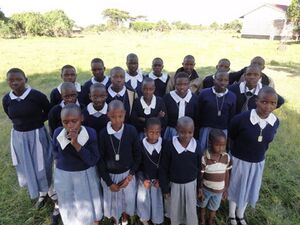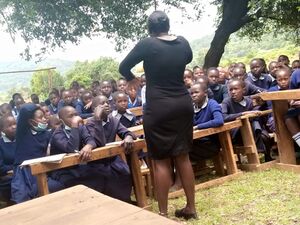Rescue Maasai Girls from Female Genital Mutilation: Difference between revisions
No edit summary |
(Updated problems) |
||
| (One intermediate revision by the same user not shown) | |||
| Line 18: | Line 18: | ||
=Project Gallery= | =Project Gallery= | ||
|Problems= | |Problems=204316,203460 | ||
|Solutions=203463 | |||
|organization_id=44233 | |organization_id=44233 | ||
|Region=Kenya | |Region=Kenya | ||
Latest revision as of 19:52, 28 June 2023
| Organization | Global Roots |
|---|---|
| Region | Afghanistan |
| Website | Website |
| N/A | |
| N/A | |
| ProjectLeader | Rick Montgomery |
| Linked Problems & Solutions
|
|---|
Despite laws attempting to prevent it, Female Genital Mutilation (FGM) remains a prevalent cultural practice among the Maasai in Kenya. Global Roots is helping to change this by conducting FGM "sensitization" outreach across the Maasai Mara and TransMara regions. We also operate a safe house that temporarily shelters threatened girls so that we can find them a safe boarding school or a relative who will contractually agree not to practice this horrific human rights crime.
Challenge
Female genital mutilation (FGM) includes procedures that intentionally alter female genital organs for non-medical reasons and is a severe violation of the human rights of girls and women. In Africa, an estimated 92 million girls 10 years old and above have undergone FGM. Today, 93% of Maasai girls are mutilated. While many girls bleed to death after the procedure, those who survive FGM are subsequently sold by their parents into early marriages.
Long-Term Impact
To date, our programs have protected more than 80 young girls from FGM and provided thousands more with the legal info they need to protect themselves. It our is goal to end FGM among the Maasai in Kenya by 2025. Besides our hard-hitting outreach programs, we have a team that will rescue any girl who we learn is threatened. Because FGM is a federal offense, most families will immediately back down when they learn they are on our radar.
References
Project Gallery










